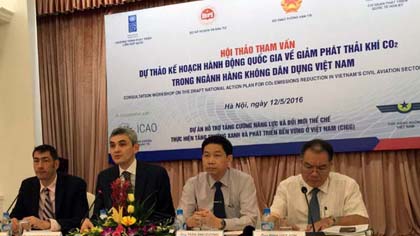Women hold key role in reducing disaster risks
The vital role of women in alleviating the risks of disasters was highlighted at a regional Asia-Pacific conference on gender and disaster risk reduction that opened in Hanoi on May 16.
 |
| At the conference |
The three-day event has brought together 70 government officials, NGOs and researchers from 22 countries as well as hundreds of representatives from Vietnamese ministries, sectors and localities, international organisations, academic institutions and United Nations agencies.
As the most vulnerable region, home to seven out of the world’s 15 most ‘at risk’ countries, the Asia-Pacific is particularly susceptible to the growing impacts of climate change. Whilst disasters do not discriminate, their impacts vary between men and women. Globally, women and children are 14 times more likely to die or be injured during a disaster than men.
Systematic discrimination towards women not only contributes to higher female mortality rates in disasters, but also inhibits their overall resilience and ability to respond. Despite often facing more severe impacts, women also hold the key to minimising disaster-related risks.
In his opening remarks, Minister of Agriculture and Rural Development Cao Duc Phat, Head of the Central Steering Committee for Natural Disaster Prevention and Control, hailed the crucial role played by women in preventing and combating natural calamities.
Experience in Vietnam shows that women are the first to prepare for disaster response activities in their families and are at the forefront of community resilience, Phat said, suggesting that women should be favoured to further promote their role in disaster risk reduction.
He called for joint efforts among nations to integrate the gender issue into their plans to implement the Sendai Framework of Action (2015-2030), which was adopted at the third World Conference on Disaster Risk Reduction in Japan in March 2015, with its guiding principle stating that “a gender, age, disability and cultural perspective should be integrated in all policies and practices, and women and youth leadership should be promoted”.
Addressing the conference, UN Women Regional Director Roberta Clarke emphasised that as a more vulnerable group to the impacts of disasters than men, women are playing a key role in disaster prevention and control, therefore they need to be better prepared in response and should be empowered to fully promote their capabilities.
“Women in the Asia-Pacific region are able and capable. They are a driving force in addressing disaster risks and in resilience building for their families and in the wider community. As we implement our regional, national and local disaster risk reduction priorities, we should provide them with the opportunity to lead, to make their voices heard and have their priorities addressed,” Clarke noted.
During its three days of sitting, the conference will discuss urgent measures to promote gender equality and promote women’s leadership throughout the four priorities of the Sendai Framework for Action, which include understanding disaster risks; strengthening disaster governance; investing in response, rehabilitation and adaptation in disaster risk reduction; and enhancing preparedness for effective response, recovery and reconstruction.
Attendees to the conference will also discuss interlinks between disasters and climate change and look at how climate change action can contribute to addressing disaster risk reduction challenges and promoting women’s leadership and participation.
(Source: NDO)
 về đầu trang
về đầu trang







